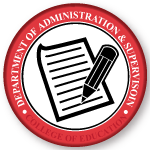Date of Award
2-2023
Degree Type
Dissertation
Degree Name
Doctor of Education (EdD)
Department
Educational Leadership
First Advisor
Dr. C. Elliott Ostler
Abstract
This dissertation explores the reimagination of mathematics education through a Bourdieusian perspective. The conceptual framework includes Bourdieu's well-defined terms: capital, field, habitus, and doxa. A thorough review of mathematics education documents finds that mathematics education has not yet considered, mathematics capital, from a Bourdieusian lens. More, examined documents reveal that key variables, mathematics teaching and learning experiences, mathematics self-efficacy, mathematics mindset, and cultural capital, interact. In this examination, cultural capital emerges thematically through all texts. Next, six mathematics teachers with dual degrees in mathematics and education are interviewed. Data analysis included a process of inductive and deductive coding. In these, a je ne sais quoi factor permeates the participants. Lastly, the framework for structural equation modeling is presented to verify the qualitative findings. The purpose of this quantitative model is to explicitly and succinctly describe the interactions that exist between the key variables and to measure their associations to mathematics capital. This chapter is also designed to disentangle and differentiate mathematics capital from any of the key variables. This dissertation closes by describing mathematics capital as a parallel to Bourdieu’s definition of cultural capital. Mathematics capital’s definition includes two components: the first is competence in school mathematics, and the next is the act of using, intent to use, or accidental use of this mathematical competence to achieve financial, cultural, social, or other gains that can be associated with an already described form of capital.
Recommended Citation
Anderson, Frances E., "MATHEMATICS CAPITAL IN MATHEMATICS EDUCATION" (2023). Educational Leadership Theses, Dissertations, and Student Creative Activity. 42.
https://digitalcommons.unomaha.edu/edleadstudent/42


Comments
The author holds to the copyright to this work. Reach out to the author directly for any reuse or permissions.